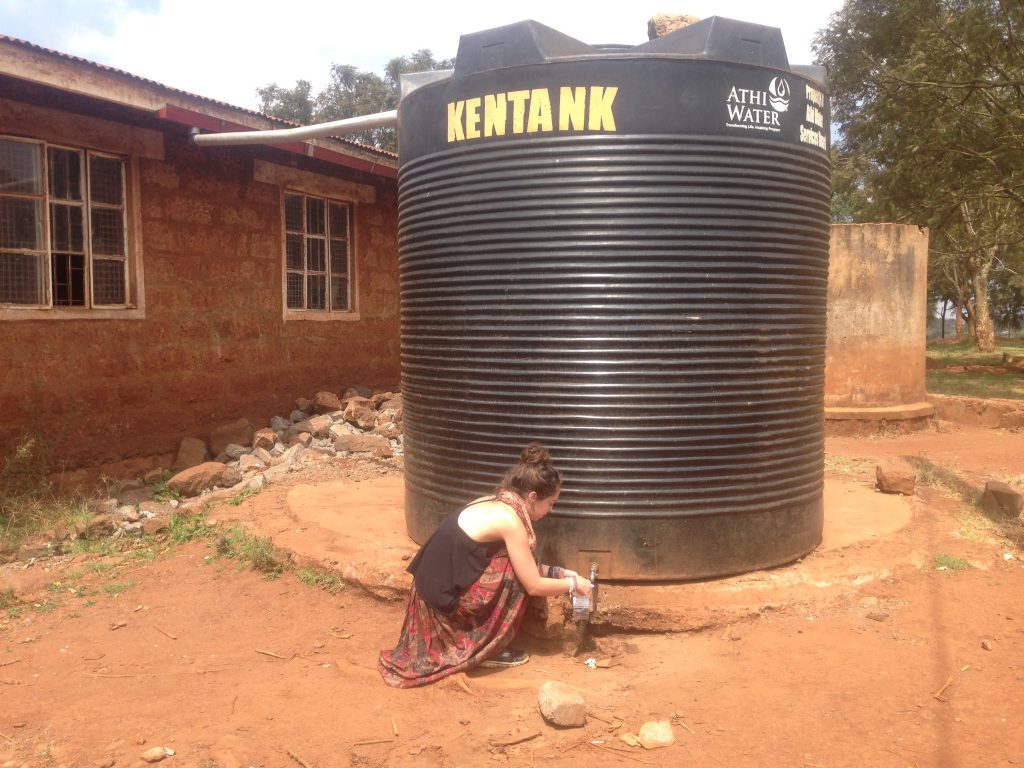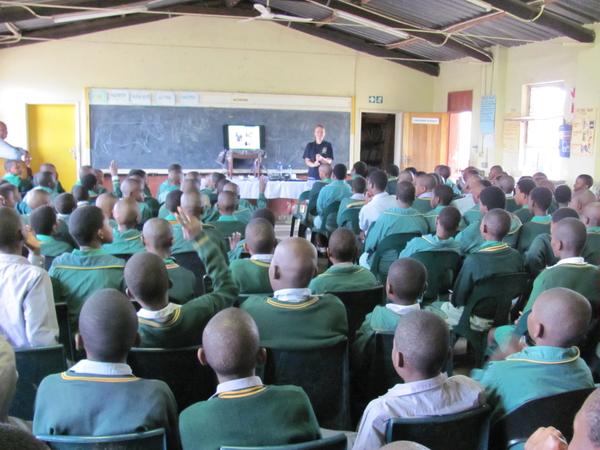
In the past month the project has received university approval to recruit the next batch of UWE students to participate in the UWE Global Water Security Project. We are hoping to fund up to eight students in the 2016-17 academic cycle and for the first time have enabled students from all UWE faculties to participate. This should result in intense competition for the places, but we hope this will lead to another excellent group leaving for Africa sometime after examinations finish in June 2016.
This will be the fourth year that the scheme runs so it seems like a good opportunity to review the types of research projects that our students have been involved with.
Since 2012 sixteen students have contributed to the project working with nine different NGO partners. Six of our partners are in Uganda, two in Kenya and one in Swaziland. With respect to specific water security projects, six students have examined water quality; three water security and sanitation in schools; two water and food security; two governance of water resources; one small-scale hydro energy production; one produced a short film that describes the impact of the rehabilitation of a community well near Kampala, funded two years ago by UWE. All the studies have been written up as undergraduate dissertations or projects, with four achieving first class marks whilst all the others who have completed have achieved Upper seconds. The standard of educational attainment has therefore been very high. In addition, all NGOs have received final and interim copies of the research reports and many students have also led workshops with NGO and community members to transmit their main findings directly back to the research participants.

Currently two of our students are working on six month placements. Calum Warriner is with the Institute of Environment and Water Management based in Nairobi. I visited him as part of another project in January and I was delighted to see that he has settled in quickly and become a valuable member of IEWM’s team.
Although he has worked on a number of projects, his main focus is on examining the role of small-scale communal gardens in supporting food security in Kibera, the largest slum in Africa. This is a challenging environment in which to work, but there is no doubt that his work is valued by the members of the garden co-operative with whom he is mainly involved and it demonstrated clearly to me the positive impact our students can have in extremely poor communities.
Another BA Geography student, Harry Chrispin, is working with a Ugandan NGO, the Joint Effort to Save the Environment (JESE), based in Fort Portal, Western Uganda. Harry has undertaken a needs assessment of WASH facilities in the Fort Portal region that should enable testing in the near future of a UWE-developed technology that converts urine into electricity. In addition, he is also examining factors that increase risks to school children from poor personal hygiene with a view to devising effective policy interventions. Feedback received from JESE has been very positive, as it has been from all NGOs with whom our students have been involved in the past three years.

Overall, I am delighted by the progress that has been made since the project started. Our students come back with even greater enthusiasm about their learning (see here and here for student blogposts on their experiences), are highly motivated with respect to making a difference to alleviate poverty and convert their experiences into excellent research outputs that have wider social benefits, or as we say in UWE, research with impact.
Our partner NGOs are very happy with their experiences of the project so far, a reflection of the academic and personal qualities of all those UWE students who have participated. We are now beginning to receive more pro-active research suggestions from our partners, for example, the possible development of a mobile phone app that will enable newly formed Swaziland farmers’ co-operatives who have never previously irrigated their crops, to better schedule their irrigation so they increase its efficient uptake by plants and take advantage of cheaper electricity tariffs, one of the biggest factors that influence their profitability.
All on the UWE Global Water Security Project are eagerly anticipating what the next academic year brings.
